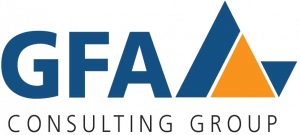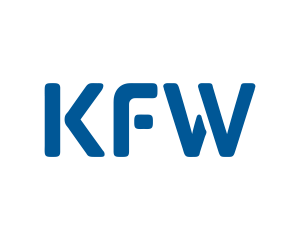Introduction
The KfW Development Bank has supported the cooperation framework between Nepal and Germany for over 20 years. This framework includes financial and technical cooperation, particularly in the areas of healthcare, sustainable economic development, and, more recently, renewable energy and efficiency. In support of the expansion of the existing KfW cooperation portfolio, HERD International is collaborating with GFA Consulting Group to conduct a sector study on health, social protection and population policy in Nepal. This study will include an assessment of the public finance landscape in Nepal, and result in an overview of the social protection sector in Nepal, including linkages between the thematic areas of nutrition, climate change adaptation, and health insurance, from a gender equality and digitalization point of view. Finally, the outcomes of the research process will be used to draft project concepts, with a clear pipeline of activities accurately defining the level of investment.
Objectives
The sector study is designed to support the development of one or more project concepts for the three thematic areas of nutrition, climate change adaptation and health insurance by providing a wide-ranging overview of the Nepali social protection sector, including linkages between the three thematic areas and any other impactful cross-cutting themes. Along with chapters for each thematic area, the study will also include a chapter on the public finance management landscape to assess the potential investment required for each project concept.
Approach
The technical approach of the study is divided into four distinct phases as set out below:
Phase 1 – Inception: The inception phase is crucial laying the foundation for the scope and content of the following phases of research, as well as ensuring a joint understanding of the project between KfW, the Ministry of Health and Populations (MoHP) and the study team. During this phase, the study team will identify and coordinate with relevant stakeholders to plan fieldwork, map existing key resources, and explore secondary data relevant to each thematic area.
Phase 2 – Public Finance Management (PFM): Building trust in public finance management systems is key to budgetary support in international development cooperation. Efforts to streamline donor activities and ensure cost-effectiveness are necessary to avoid duplicating efforts and to assess ongoing PFM reforms before granting budget support.
As per regulation, a PFM assessment is key to seeking approval from the German Parliament’s Budget Committee. This second phase will involve a desk research of existing PFM assessments, as well as field visits by a PFM expert for stakeholder meetings and data analysis, to provide an updated PFM assessment report for Nepal.
Phase 3 – Scoping and Data Collection: The third phase will start concurrently with Phase 2 with a focus on collecting and analysing relevant data on the three thematic areas of health, nutrition, and social protection. This phase also includes field visits and semi-structured interviews with stakeholders identified in Phase 1. The study team will also develop a gap analysis report and draft a first outline of project concepts. A workshop will be held to share the preliminary findings with key stakeholders and relevant experts to gather their input and feedback.
Phase 4 – Project Concepts Design: The study team will review the feedback from the workshop and develop details of the project concepts. These concepts will be finalized based on feasibility, tentative costs, and associated funding options. After a final review with international experts, the team will deliver the completed sector study report to the MoHP and KfW.
Associated Team Members
Ghanshyam Gautam
Lead - Health Economics, Systems and Social ProtectionGhanshyam Gautam
Lead - Health Economics, Systems and Social ProtectionAppointed as the lead of Strategy, Partnership and Business Department Dr. Ghanshyam Gautam is a Health Economist possessing more than 20 years of experience in health policy and systems reform, social protection, evidence-based planning and capacity development. His key areas of expertise include policy and strategic reform, health systems strengthening, health financing and universal health coverage, social protection, system and policy research. He currently holds the position of Lead- Health Economics, Systems and Social Protection at HERD International and has [...]
Learn moreBishnu Prasad Dulal
Lead- Information System and Population ServiceAppointed as the lead of MEL and Data Analytics Department Mr. Bishnu Prasad Dulal is an experienced Health Information System expert, Data Analysis and Research Design specialist with 18 years of experience. With a master’s degree in Population Studies from Tribhuvan University, Mr. Dulal brings knowledge and skills to the field of health information systems and research. His expertise lies in the areas of health information system strengthening, public health research, monitoring and evaluation, proposal writing, data management and analysis, [...]
Learn moreProject Location
Similar Projects
Understanding the policy environment, people’s perception and use, and co-creating intervention for labelling of SSBs to reduce ...
Introduction The Participatory Engagement of City Communities Against Non-communicable Disease Risk in Bangladesh and Nepal (PECAN) ...
BACKGROUND The Constitution of Nepal states that every citizen shall have the right to seek basic health services (BHS). Urban ...
Background The growing numbers of urban poor around the world face several health challenges including the double burden of diseases, ...
Gender and Equity within Antimicrobial Resistance (GEAR UP) is a Fleming Fund Regional Grant consortium led by the Liverpool School of ...
Introduction Globally, Antimicrobial Resistance (AMR) poses a profound threat to humanity, with consequences ranging from increased ...
Background Antimicrobial resistance (AMR) is when microorganisms evolve mechanisms to survive the drugs designed to destroy them (WHO ...
Introduction The Pandemic Preparedness Toolkit (PPT) is a five-year project (2023 – 2028), funded by Wellcome, which aims to ...
Background The growing numbers of urban poor around the world face several health challenges including the double burden of ...
Introduction The climate crisis is a global health threat. Heatwaves, droughts, floods and landslides cause substantial morbidity and ...




